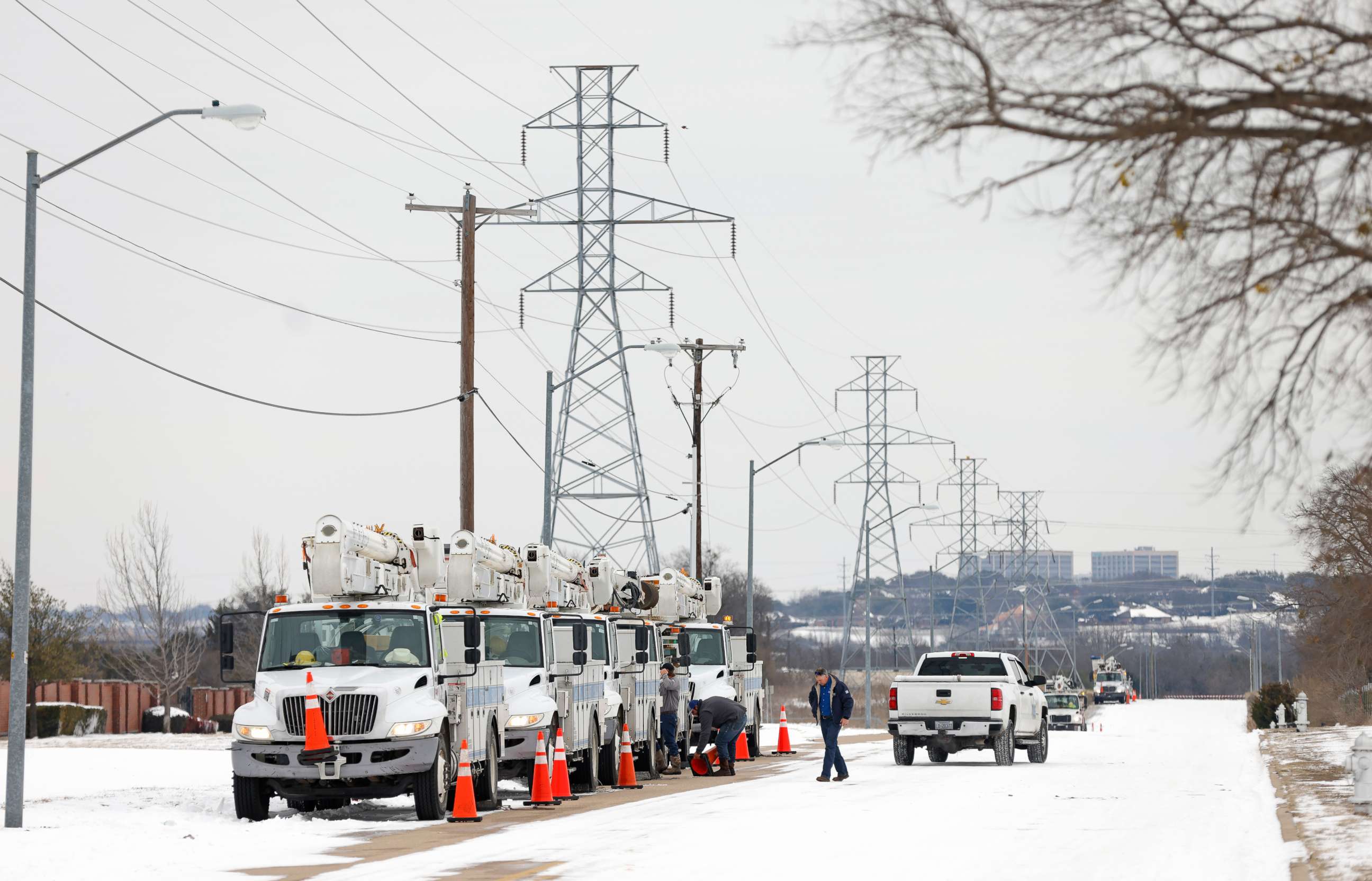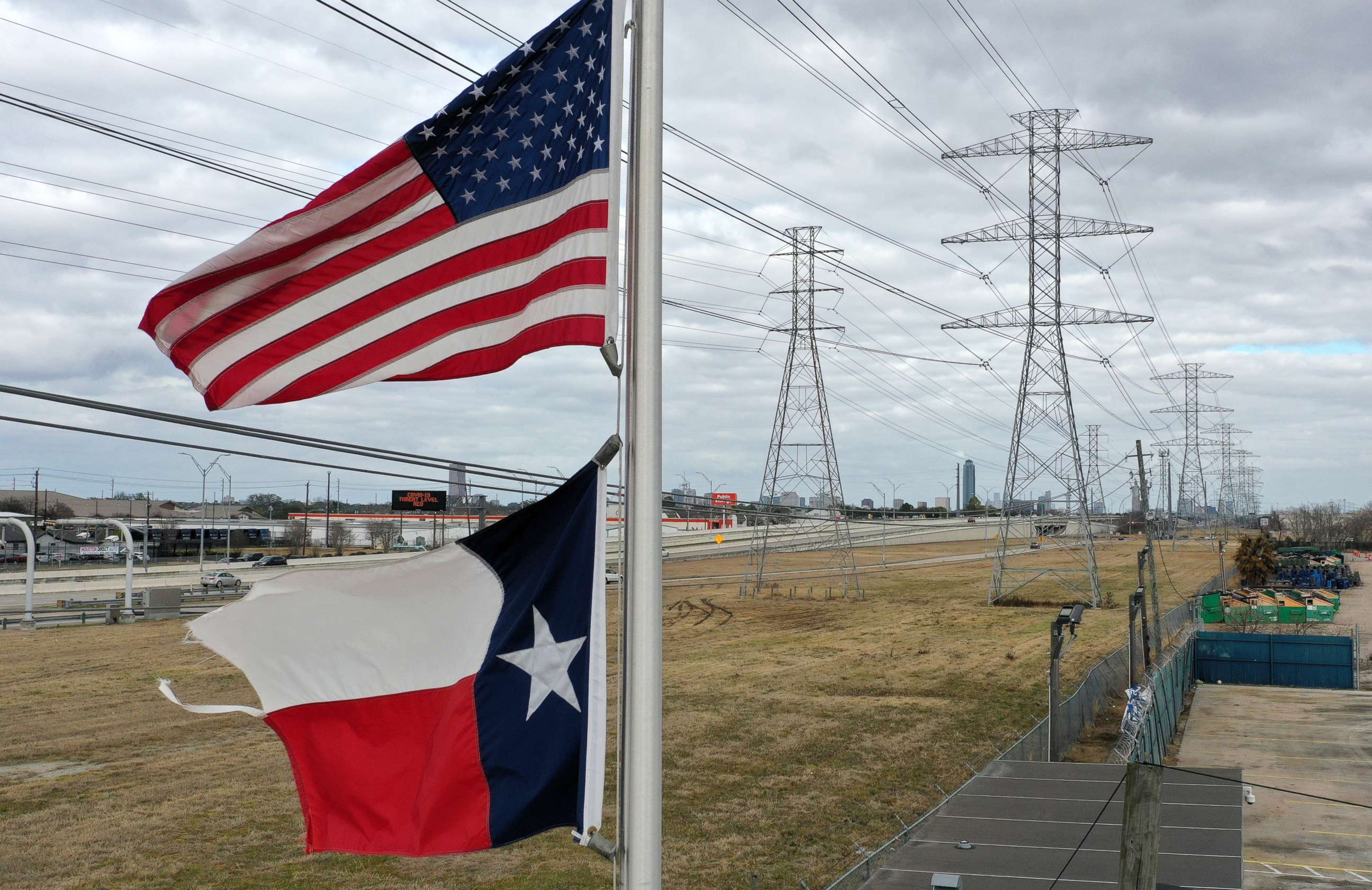Texan files $1 billion class-action lawsuit after receiving $9,000 electric bill
One resident said her bill soared to $9,340 the week of the Texas storm.
A $1 billion class-action lawsuit has been filed against Texas wholesale electricity retailer Griddy Energy for allegedly charging exorbitant prices during last week's historic storm that left millions powerless in the freezing cold.
The lawsuit was filed on behalf of Chambers County resident Lisa Khoury in Harris County on Monday, who claimed her electricity bill soared to $9,340 the week of the storm. According to the lawsuit, her average monthly bills typically range from $200 to $250.
She said Griddy automatically withdrew $1,200 from her bank account from Feb. 13 to 18 and her overall bill from Feb. 1 to 19 was $9,546. The lawsuit states that some customers had bills as high as $17,000.
The complaint accused the company of "overcharging" some 29,000 customers "knowing consumers would be harmed."

Khoury said she was hit with the charges even as she and her husband suffered "mostly without power" in their home from Feb. 17 to 18 when they hosted her parents and in-laws who are in their 80s during the storm.
She claimed that despite expressing concern over the withdrawals and subsequently bouncing checks, she never heard back from Griddy. She ultimately placed a stop payment on her bank account on Feb. 18.
In Texas residents can choose between two electricity bill options: A fixed plan, where their price stays at one rate regardless of market conditions, or a market rate plan, which can fluctuate based on how much electricity is used and the market price of electricity. Griddy offers the latter plan.
“We charge (customers) the wholesale, real-time price of energy, which changes every 5 minutes. You effectively pay the same price as a retail energy provider or utility," Griddyy said in a statement. Griddy boasts on its website that this strategy ends up being cheaper for most customers.
Last week's storm pummeled the state's power grid and led to rolling blackouts. It also led Griddy's wholesale rate to soar to $9,000 per megawatt hour due to a shortage of supply and increased demand for power. Before the storm the rate was $50 per megawatt hour, the suit states.
In the build up to the storm Griddy advised its customers to switch to another provider with a fixed rate and told customers via its website that it was "seeking relief from utility regulators." But many were unable to change due to the impending weather.
The lawsuit seeks $1 billion in monetary relief for Khoury and "on behalf of all others similarly situated."

It also accuses Griddy of violating the Texas Deceptive Trade Practices Act and requests an injunction to stop the company from collecting payment for "excessive prices".
Khoury's attorney Derek Potts, of the Houston-based Potts Law Firm, told ABC News Griddy has 29,000 customers in Texas that the lawsuit could impact.
"What happened financially to all of the customers of Griddy both in terms of the exorbitant prices charged and the manner in that they were collected from peoples' bank accounts and credit cards literally in the middle of a catastrophe while many were without power, heat, and water, is clearly contrary to Texas laws in place to protect consumers," Potts said.
Griddy has not immediately responded to ABC News' request for comment, but dismissed the lawsuit as "meritless" to Reuters.
Griddy has cast blame on the Public Utility Commission for raising the wholesale market price of electricity in the crisis, saying the company didn't profit from the raised prices.
"We intend to fight this for, and alongside, our customers for equity and accountability – to reveal why such price increases were allowed to happen as millions of Texans went without power," Griddy said in a blog post.
Texas' embattled power grid operator the Electric Reliability Council of Texas (ERCOT) is also facing lawsuits after more than 4 million customers lost power in the storm.
ERCOT's top board leaders announced Tuesday that they will step down amid outrage over the corporation's handling of the storm. Four board directors, including the chairwoman and vice chairman, submitted their resignations, which were effective as of Wednesday. A candidate for a board director position also said he was withdrawing his name from consideration. All five live outside of Texas, which only intensified scrutiny of ERCOT.
ABC News' Morgan Winsor contributed to this report.






